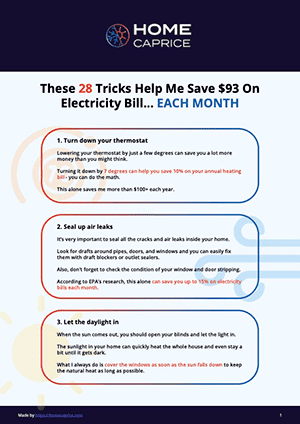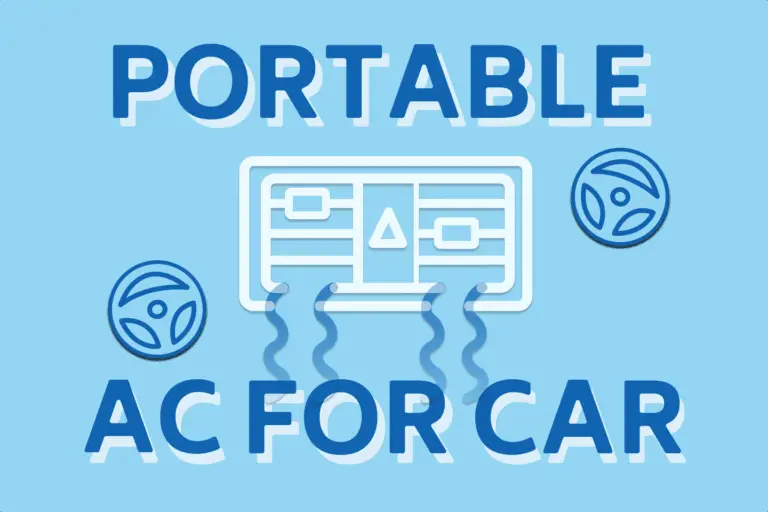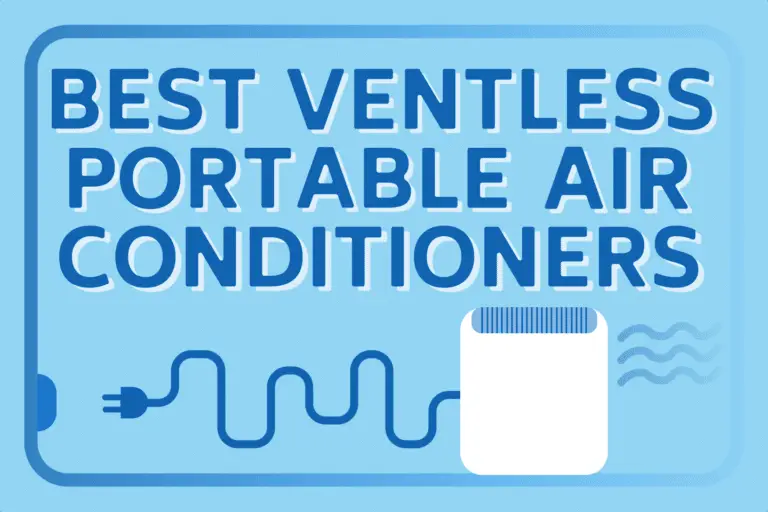If you have recently noticed a pool around your outside AC unit or a few drops of water leaking – then you need to see this.
Water leakage can be very dangerous and develop even bigger issues for your HVAC system, but in some cases, it’s a normal thing.
The key is to recognize how serious the problem is and fix it immediately.
Let’s jump straight into the most common causes of water leakage and how you can fix it on your own.
7 Most Common Causes of Air Conditioner Leaking Outside
Broken condensate pump
A condensate pump is responsible for pumping water out of the system and it’s usually located inside your home.
However, the condensate pump might be broken so it isn’t pumping out water properly and you still have leakage outside.
When water starts adding up and the condensate pump can’t function anymore – the leakage will start.
You should inspect it further to check whether it’s broken or debris and dirt also piled up, then you should proceed to clean it first.
Broken condensate pan
Similar to a condensate pump, when the condensate pan has cracks – your air conditioner will leak water outside.
In most cases, the pan is located below evaporator coils and it’s designed to collect moisture.
When there are cracks, the water won’t go down to the condensate drain and it will flow through these cracks which will end up with leakage.
The best and fastest way to solve this is to replace the condensate pan with the new one.
If you’re doing it by yourself, ensure that you turn off the power completely.
💡Tip: Read the most common reasons why your AC is leaking water.
Faulty AC installation
You’d be surprised how often this is happening.
If you have a newly installed air conditioner and it’s leaking water – it might be that it wasn’t installed properly.
More often than not, this is because of incorrect sizing. You might buy a unit that’s too weak for your needs and space.
You should always seek a professional HVAC technician for proper air conditioner installation.
Clogged condensate line
The condensate line is a very important part of your HVAC system, so you can’t expect your AC to work properly if the condensate line is clogged or broken.
A good thing is that this is a very simple issue.
You simply need a bleach solution and water to clean drain lines every month or so, or even better – use a vacuum cleaner to get rid of all dust and debris inside it.
Frozen evaporator coils
When there’s a lot of debris and dust inside evaporator coils, it can quickly lead to freezing.
However, coils might get frozen because of insufficient refrigerant levels or even dirty filters.
Once the ice starts collecting on these coils, it will most likely have excess water through the drain line which will start the leaking process.
Here are the easiest ways to unfreeze your air conditioner.
Cold weather
If there were lower than usual temperatures in your area (such as below 50 degrees), water leakage is a normal thing and you don’t have to worry.
At these types of temperatures, coils will usually freeze and start leaking water around your AC unit.
The only way to really avoid it is to completely turn off the system and wait when your coils will unfreeze.
Poor maintenance
Usually, all these leakage issues are connected to poor maintenance.
We’ve all been guilty of it, so it’s not something to be ashamed of 🙂
Your HVAC system, the same as your car, needs proper maintenance every few months.
My honest recommendation is to seek a professional HVAC technician as he can offer professional help and even prevent a lot of issues that will cost you a lot of money if not fixed properly.
Is Water Leaking From My Air Conditioner Normal?
Well, it all depends on multiple factors.
The amount of water leakage is the first sign that your AC’s leakage is normal or abnormal.
If you have a few drops around your outside unit, then it’s normal. However, if you have a pool around your unit, then it might be time to start fixing the issues.
When your AC is working, it’s normal to see drops of water leaking from the drain tube, so it’s not something to worry about.
The best indicator is the amount of water leaking, so pay close attention to it.
Some smart air conditioners will warn you about water leakage, so it’s always worth owning one.


Download this FREE cheat sheet to find 28 tricks that can help you save on your electricity and heating bill each month.
Click here to get a FREE Cheat-Sheet
![How Long Can Air Conditioner Run Continuously [Calculated]](https://homecaprice.com/wp-content/uploads/2023/02/how-long-can-ac-run-continuously_URL-768x512.png)

